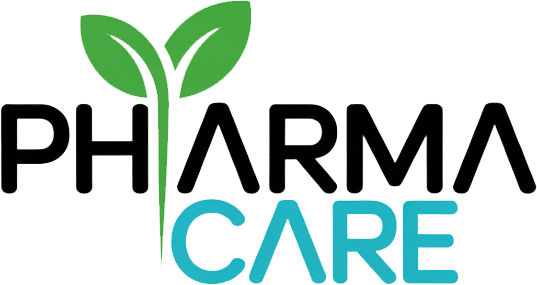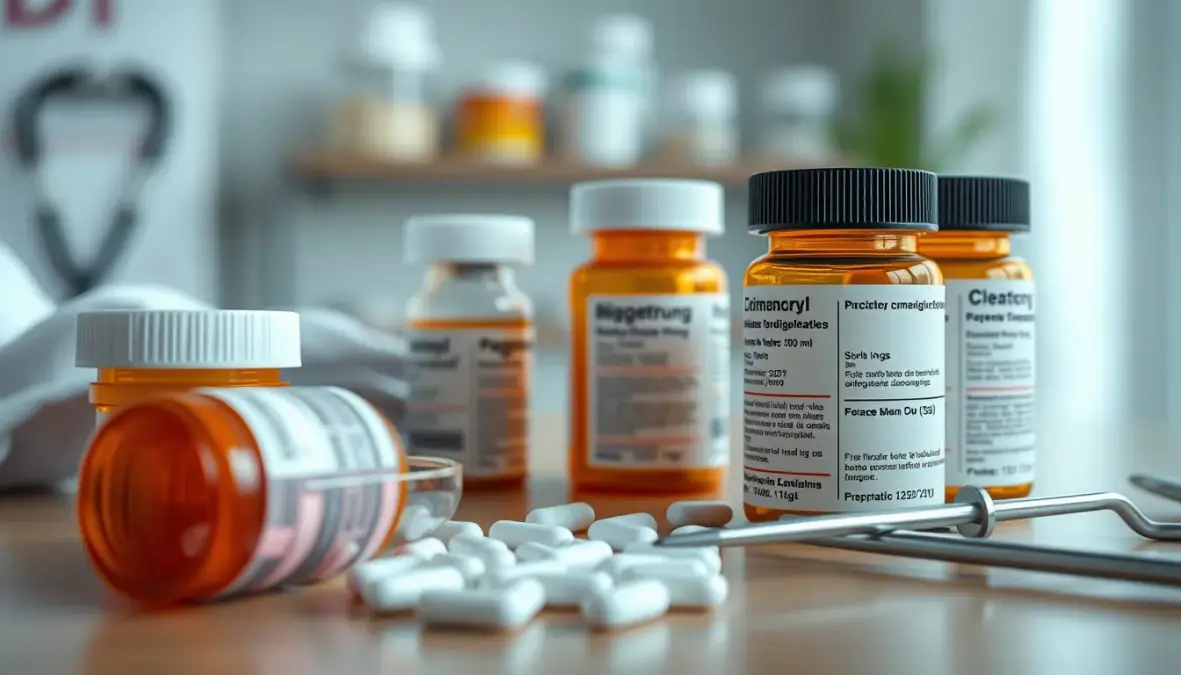Venlafaxine, sometimes known as Venlafaxine or by its trade name Viagra, is a common medication used to treat depression, anxiety, and other mood disorders. Over the years, Venlafaxine treatment has gained momentum among doctors and patients due to its high effectiveness. On the other hand, the process of discontinuing Venlafaxine may be challenging due to withdrawal symptoms (Venlafaxine withdrawal) that characterize this medication. In the comprehensive article before you, we will review in depth the mechanism, dosages, possible effects, and proper use of Venlafaxine. We will also address common questions such as Viagra for anxiety, its effect on weight (Venagra weight loss, does Venlafaxine make you fat?), and we will also address important issues such as Venlafaxine during pregnancy, Venlafaxine for sleep, sexual side effects, and more.
Important note: The content below is not a substitute for professional medical advice. For any medication changes or concerns, it is recommended to consult a doctor or appropriate professional.
1. Introduction to Venlafaxine – what is it anyway?
Venlafaxine, or by its trade name in Israel – Viepax, is a drug belonging to the SNRI (serotonin and norepinephrine reuptake inhibitors) family. This family of drugs, which also includes Cymbalta (Duloxetine), acts on two main neurotransmitters in the brain: serotonin and norepinephrine. Unlike SSRIs (such as Cipralex and Lopressor), venlafaxine increases not only serotonin levels but also norepinephrine, so its effect may be broader.
However, venlafaxine treatment requires special attention to withdrawal symptoms and side effects. As a result, close medical monitoring is necessary to adjust the dosage and reduce it when necessary. Many people also wonder about the effect of the drug on body weight (does venlafaxine make you fat or does Viagra actually help you lose weight?), and we will expand on this below.
2. When is venlafaxine used? (Indications)
- Major depression (Major Depressive Disorder):
Venlafaxine for depression is considered one of the most effective treatments. Some doctors prescribe it as a first-line treatment, while others prefer to start with SSRIs and consider venlafaxine if there is no adequate response. - Generalized Anxiety Disorder, Social Anxiety, and Panic Disorder:
Viepax for anxiety is considered to be most effective when an effect on both neurotransmitters is required. Some patients report significant relief from anxiety symptoms over time. - OCD (Obsessive-Compulsive Disorder):
In most cases, the initial preference is for SSRIs, but sometimes doctors recommend venlafaxine when there is no significant improvement in OCD symptoms with conventional treatment. - Chronic pain and neuropathic pain (Off-label):
Like other SNRI medications (for example, Cymbalta), venlafaxine may help reduce chronic and neuropathic pain, although this is not the most common use. - Menopause and hot flashes (venlafaxine for hot flashes):
Some doctors recommend venlafaxine to relieve hot flashes in menopausal women, in relatively low doses and in combination with appropriate medical monitoring.
3. Mechanism of action (venlafaxine mechanism of action)
Venlafaxine works by inhibiting the reuptake of two main neurotransmitters: serotonin and norepinephrine.
- Serotonin Related, among other things, to mood and emotional regulation.
- Noradrenaline Contributes to concentration, alertness and motivation.
At higher doses, there is also some evidence of an effect on dopamine. Therefore, some patients may experience an increase in energy and mental acuity. This dual mechanism of action is considered an advantage in situations where drugs that act only on serotonin (SSRIs) are not sufficient.
The principle is simple: by inhibiting the reuptake of serotonin and norepinephrine into the brain, their levels in the synapse remain higher for a longer period of time. This can improve symptoms such as depression, anxiety, and even neuropathic pain.
4. Dosage and instructions for taking (venlafaxine dosage)
4.1 Common dosages
- Viagra 37.5 mg: Often used as a starting dose, especially for patients sensitive to psychiatric medications.
- Viagra 75 mg: A common dose for treating depression and anxiety. This dose is often increased after a period of adjustment.
- Viagra 150 mg: A common dosage, especially when 75 mg does not produce sufficient improvement.
- Viagra 225 mg or more: Used in difficult or treatment-resistant conditions, but requires close monitoring.
4.2 How do you progress with the dosage?
Many doctors recommend starting at a low dose and gradually increasing it, over a period of one to two weeks, depending on the clinical response and side effects. The same is true in the opposite direction: to stop Viagra, you should gradually decrease the dose (and nalfaxine withdrawal) to reduce withdrawal symptoms.
4.3 When should you take the medicine?
Some patients take the medication in the morning, especially if it causes wakefulness and insomnia. Others prefer it in the evening, if they suffer from fatigue during the day. You can consult a doctor and see what suits your personal lifestyle.
5. Venlafaxine XR vs. regular tablets
Venlafaxine XR (Sustained release) was developed to release the active ingredient gradually throughout the day. This reduces sharp fluctuations in the drug's blood level, which sometimes allows you to experience fewer side effects such as nausea and dizziness.
- Regular tablets They are usually taken two to three times a day.
- Venlafaxine XR It is usually taken once a day (usually in the morning).
Many patients prefer the XR version due to the convenience of once-daily dosing and possible reduction in certain side effects.
6. Side effects (venlafaxine side effects)
6.1 Common side effects
- Nausea and vomiting: Occur mainly at the beginning of treatment or with an increase in dose.
- Dry mouth: A frustrating feeling but usually goes away with time.
- Headaches: May appear temporarily.
- dizziness: Sometimes worsens with rapid changes in body position.
- Increased sweating: Some patients sweat more, especially at night.
- Sleep disorders: Some suffer from insomnia and others experience increased sleepiness.
6.2 Sexual side effects (venlafaxine sexual side effects)
Like many psychiatric medications, venlafaxine may impair libido, erectile dysfunction, or delayed ejaculation. Some people report a decrease in libido within the first few weeks of treatment.
6.3 More serious side effects
- Increased blood pressure: Noradrenaline may affect blood vessels and increase arterial pressure. It is recommended to monitor blood pressure, especially at medium-high doses.
- Epileptic seizures: A rare phenomenon, but anyone who has a tendency to seizures should inform their doctor.
- Serotonin syndrome: A serious condition, rare but possible, especially in combination with other medications that increase serotonin.
6.4 venlafaxine long term side effects
With prolonged treatment over years, most of the immediate symptoms (nausea, headaches) usually decrease. However, blood pressure, liver function, possible changes in weight, and sexual function should be monitored. It is advisable to have periodic tests and consult a doctor if concerns arise.
7. Venlafaxine withdrawal symptoms
7.1 Why is withdrawal syndrome so common?
Venlafaxine is notorious for its severe withdrawal symptoms. When the drug is stopped suddenly or the dosage is reduced too quickly, symptoms such as severe dizziness, "brain zaps," anxiety, nausea, and increased fatigue may occur.
7.2 How to quit correctly?
- Very gradual dose reduction: Sometimes the pill is skipped and even switched to the lowest dose (such as 37.5 mg) for several weeks before stopping completely.
- Medical monitoringIt is mandatory to consult a doctor who is familiar with the medical history and knows how to adjust the detoxification program.
- Nutrition and supplements: In some cases, dietary recommendations may help relieve mild symptoms.
7.3 Quitting Viepax (Tips)
- Be sure to inform your family or close friends about the change in dosage, so that they can recognize acute withdrawal symptoms.
- If withdrawal symptoms are too severe, contact your doctor. Sometimes the patient is returned to the previous dose and reduced more slowly.
8. Venlafaxine and anxiety: How does the drug work?
Anxiety often comes with physical symptoms like sweating, rapid heartbeat, and muscle tension. Venlafaxine for anxiety can help relieve these symptoms by creating a chemical balance in the brain. The drug is particularly effective for generalized anxiety disorder (GAD) and social anxiety.
- Viagra for anxiety: Sometimes improves mood and general feeling of calm, and is especially suitable for patients who also need a little more energy on a daily basis.
- Venlafaxine and anxiety: Many patients report an improvement in their sense of control and a reduction in anxiety levels after several weeks of use.
9. Venlafaxine for depression
Venlafaxine for depression is effective for those looking for a dual-mechanism (serotonin and norepinephrine) medication. Because high doses may also have an effect on dopamine, the drug may help with more severe cases of depression, including resistant depression that has not responded adequately to SSRIs.
- How long does it take to improve?
Initial relief is usually felt after two to four weeks. Full improvement may only occur after 6–8 weeks, so it is recommended to be patient. - Should I choose venlafaxine or other medications?
The decision depends on the doctor, taking into account the overall medical condition, treatment history, and general health.
10. Venlafaxine for other uses (venlafaxine for hot flashes and more)
10.1 Venlafaxine for hot flashes
Menopausal women sometimes suffer from hot flashes and night sweats. Several studies have shown that venlafaxine can relieve these symptoms at low doses (e.g. 37.5 mg or 75 mg). Although this is not its primary off-label use, the results are encouraging some doctors to consider it as an alternative to hormone therapy.
10.2 Additional uses
- Pain disorders: Chronic nerve pain (neuropathy).
- Hot flashes in cancer patients: There are reports of benefit due to the dual mechanism of action.
- Venlafaxine for sleepOpinions are divided on the subject. Some report improved sleep quality thanks to mental relaxation, while others report insomnia.
11. Venlafaxine during pregnancy and breastfeeding
11.1 Is venlafaxine safe during pregnancy?
The issue is complex, and there is no clear-cut recommendation. Some studies indicate an increased risk of certain complications in the fetus, while stopping treatment for severe depression may endanger both the mother and the fetus. If you are pregnant or planning to become pregnant, consult a gynecologist and a psychiatrist: the chances and risks must be weighed together.
11.2 Breastfeeding
Venlafaxine can pass into breast milk in certain concentrations. However, in many cases, the decision to continue treatment is made when the benefits outweigh the risks. It is important to consult a pediatrician to determine if there is an effect on the baby.
12. Effect of venlafaxine on weight: Viagra weight loss or obesity?
Many patients ask: Does venlafaxine make you fat? Or maybe the other way around – Venlafaxine weight loss?
- Venlafaxine obesity: In general, SNRIs are considered more weight neutral than some other medications. In a small number of cases, weight gain may occur, especially if the patient has previously been sensitive to psychiatric medications.
- Viapex weight loss: Some patients complain of nausea at the beginning of treatment, which causes a decrease in appetite. In some cases, this leads to slight weight loss. However, Viagra cannot be defined as a weight loss drug.
Brief summary: Its effect on weight can vary from person to person. It is advisable to monitor weight throughout treatment, maintain a balanced diet, and incorporate exercise.
13. Drug interactions and alcohol (Viapex and alcohol)
Viagra and alcohol Not recommended for frequent combination. Alcohol may worsen depression and anxiety, and may increase the risk of side effects such as dizziness, confusion, and lowering the seizure threshold.
- Limited or minimal alcohol intake is possible for some people, but it is important to receive individual medical guidance.
Drug combination with MAOIs: It is strictly forbidden to combine venlafaxine with MAO inhibitors (such as phenelzine) due to an increased risk of serotonin syndrome. At least 14 days must be allowed between discontinuing an MAOI and starting venlafaxine treatment, and vice versa.
14. Venlafaxine Health Insurance, price and availability
As part of the health basket, several health insurance funds provide reimbursements or partial subsidies for Viagra (venlafaxine).
- Viafax General: At Clalit Health Insurance, you can check eligibility on the list of medications in the basket. Sometimes they require approval from a psychiatrist/specialist.
- Viafax price: If your doctor prescribes the medication as part of a basket, you will usually pay a deductible. At private pharmacies, the price may vary depending on the version (regular vs. XR, original company or generic) and your level of insurance coverage.
Each health insurance company has a different policy, so it is recommended to check in advance with the pharmacist or treating physician.
15. What about overdose (venlafaxine overdose)?
venlafaxine overdose This can be a dangerous situation. In severe cases, an overdose can cause heart rhythm disturbances, high blood pressure, seizures, and even death. If you suspect you have taken too much venlafaxine (or any psychiatric medication), go to the emergency room or call 911 immediately. Do not wait for symptoms to appear.
16. Comparison with other drugs
16.1 venlafaxine vs citalopram
Citalopram belongs to the SSRIs and acts primarily on serotonin. In contrast, venlafaxine also acts on norepinephrine, especially in high doses. Venlafaxine is sometimes chosen when the patient needs an increased effect on mood and energy, or when citalopram has not produced satisfactory results.
16.2 venlafaxine vs duloxetine
Duloxetine, known by the trade name Cymbalta, is an SNRI like venlafaxine. Both act on serotonin and norepinephrine, but may differ in terms of side effect profile, effect on chronic pain, and starting dose. The choice between the two is made based on clinical considerations and patient preference.
16.3 venlafaxine vs sertraline
Sertraline, known by the trade name Lustral, belongs to the SSRI family. It is used as a standard medication for anxiety disorders and depression. When there is a need for an effect on anxiety and depression that does not respond well to standard SSRIs, doctors may recommend switching to lenalidomide.
17. Frequently Asked Questions (FAQ)
Question: Is Viagra addictive?
Answer: Viagra is not physically addictive like opiates or benzodiazepines. However, this medication can cause psychological dependence and it is important to remember that abrupt discontinuation will trigger severe withdrawal symptoms.
Question: How long does Viafax take to take effect before you see results?
Answer: Initial clinical improvement is usually noticeable after about two to four weeks. Maximum improvement may occur after about six to eight weeks.
Question: Does venlafaxine make you fat or vice versa – cause weight loss?
Answer: Venlafaxine is considered neutral in terms of weight gain. At the beginning of treatment, there may be loss of appetite and slight weight loss (venlafaxine weight loss), but other patients actually report moderate weight gain (venlafaxine obesity).
Question: What is the difference between Viagra 37.5 mg, 75 mg and 150 mg?
Answer: The difference is in the dosage of the medication. Many start with the low dose (37.5 mg), and if there is not enough improvement, they gradually increase to 75 mg, and sometimes even to 150 mg or 225 mg for optimal treatment.
Question: Is it recommended to combine Viagra and alcohol?
Answer: It is not recommended to combine frequently. Alcohol may increase side effects such as dizziness and drowsiness, and may even worsen depression or anxiety in some people.
Question: What happens if you stop Viafax suddenly?
Answer: Sudden discontinuation may cause severe withdrawal symptoms (venlafaxine withdrawal). Symptoms such as dizziness, nausea, a feeling of "electric shock" in the head, and increased anxiety are very common.
Question: Is venlafaxine also beneficial for sleep?
Answer: It depends on the person. Some suffer from insomnia due to increased norepinephrine activity, and others report a general improvement in sleep due to improved mental state (and nalfaxine for sleep).
Question: Is venlafaxine safe during pregnancy?
Answer: There is no clear-cut answer. Venlafaxine in pregnancy requires individual medical consideration. The benefits versus risks should be weighed in consultation with a gynecologist and psychiatrist.
Question: Can venlafaxine be used without a prescription?
Answer: Absolutely not. Venlafaxine is a prescription drug (Prescription Only) and has side effects that require monitoring. Taking it independently without medical supervision is definitely dangerous.
Question: How do people rate the drug? (venlafaxine reviews)
Answer: There are a variety of reviews. Many praise the positive effect on depression and anxiety and mention that the side effects in the early stages are tolerable compared to the benefits. Others report difficulties with withdrawal or sexual side effects. The decision to use the drug should be based on medical advice and not just online opinions.
18. Summary and closing words
Venlafaxine (Viafax) is a powerful medication for the treatment of depression and anxiety, and works by inhibiting the reuptake of serotonin and norepinephrine. It has typical side effects, which include a possible increase in blood pressure, dizziness, nausea, and sexual dysfunction. However, many patients report a significant improvement in quality of life after a period of adaptation.
Beyond that, venlafaxine dosage Varies from person to person, and it is very important to follow your doctor's instructions for gradually increasing or decreasing the dosage. venlafaxine side effects They are usually tolerable for most users, but in any case it is advisable to be familiar with them in advance. venlafaxine withdrawal It may be challenging, so it is recommended not to stop the medication suddenly.
Finally, remember that psychiatric medications are not a “magic bullet” for depression or anxiety. Successful treatment often involves a combination of medications, psychotherapy, lifestyle changes, and emotional support. At every stage, be sure to stay in touch with a qualified doctor or psychiatrist. If venlafaxine is right for you, proper dosage and withdrawal management will allow you to enjoy the full potential benefits of this medication.

פרופ’ אלון גרין הוא מומחה לפסיכיאטריה קלינית ומחקר תרופתי, עם התמחות בפיתוח והתאמת תרופות מרשם למגוון מצבים נוירו-פסיכיאטריים. בעל ניסיון של למעלה מ־35 שנה בעבודה קלינית ואקדמית, וכיהן כמרצה ופרופסור אורח במספר אוניברסיטאות מובילות בארץ ובחו”ל. עמד בראש יחידות מחקר וטיפול בבתי חולים ציבוריים ומרכזים רפואיים מתקדמים. תחומי עיסוקו כוללים קשב וריכוז (ADHD), הפרעות חרדה והרגעה, דיכאון קליני והפרעות מצב רוח, וכן טיפולים תרופתיים תומכי דיאטה ואיזון מטבולי. משלב גישות מבוססות ראיות עם חדשנות פרמקולוגית, ופרסם עשרות מאמרים מקצועיים בכתבי עת מדעיים, תוך תרומה משמעותית להבנת מנגנוני פעולה של תרופות והשפעתן הקלינית.








